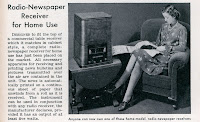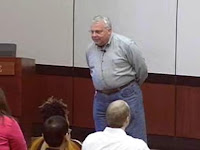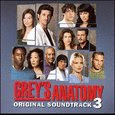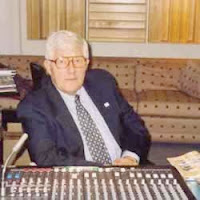
Radio and the labels.
They’re doing themselves in.
There are no heroes, just villains.
Not only do they hate each other – they hate the people that made them successful. The consumer.
The “free” business model being adopted on-line and elsewhere essentially has its roots in the relationship radio and records used to benefit from.
Radio played the music the labels sold.
Radio didn’t own the content it played any more than Google owns the content it delivers through its search engine.
Certainly, the old radio-label relationship was not a perfect world. What is?
Sporadically, labels manipulated airplay through payola and paper adds.
And today there are web sites that try to manipulate search rankings with their own tricks of the trade.

But the issue at hand is occurring at a time when the free business model is becoming the most efficient means to market. The labels, through their influence peddling lobby group, the Record Industry Association of America (RIAA) are on a hell-bent quest to charge for content that’s always been free.
You already know how the story ends if they get their way. Both radio and the labels will be out of business.
We’re dealing with two industries where below average is the new average.
Radio’s broke and broken. Brand-name radio groups are teetering on the edge of bankruptcy, owing more on their properties than they’re worth. Some have found transitory ways to delay the evitable but time, like luck, will run out.

But that didn’t stop the CEOs of these distressed radio chains from rewarding their failure by paying themselves hefty salaries and bonuses. Right, Mr. Dickey? Right, Mr. Mays? Right, Mr. Suleman? Wink, wink, nudge, nudge.
The labels are also broke and broken. They ignored downloading because they didn’t think of it first and then tried to sue its customers for getting their product on line through file-sharing programs, which they had initially rejected. The CD is now as old as the vinyl album it replaced. Those buying physical product are in the minority – and eventually that shrinking market will be made up of mostly collectors and hoarders.
It still doesn’t stop the CEOs of these troubled label groups from rewarding their failure by paying themselves hefty salaries and bonuses. Take Warner Music Group CEO Edgar Bronfman Jr. He received a $3 million bonus check for his company taking a $56 million loss in 2008. Did I mention that Warner Music stock dropped over 25 percent in 2008? The Wall Street Journal reported that his board awarded the bonus because he did a “good job in a tough environment.”
And you thought AIG had effrontery? You’d never know there’s a severe recession from inside the corporate offices of radio and the labels. They’re still partying like it’s 1999 because they refuse to recognize how business is being done in the 21st century. It’s nice to have family and friends controlling your board. Right, Mr. Dickey? Right, Mr. Bronfman?
The labels ignore consumer complaints but will gladly sic the RIAA Dobermans to sue a few dozen file-sharers in a battle that is mathematically impossible to win.
Radio ignores its listeners. You can’t even detect a heartbeat at most radio station studios during middays, nights or weekends. Its rapidly declining TSL confirms that those who are listening to terrestrial radio are listening less – and, according to share parity, most do not have a favorite radio station.
Neither the labels nor radio understand the power of peer pressure when applied to the Internet. We now inhabit a customer-driven, customer-critic marketplace. The two sides are clueless as to their roles as entertainment providers in 2009 and beyond. You give the people what they want and when they want it.
Before blaming illegal downloading on the labels’ ills, know that the convergence to the Internet has impacted the video rental market, too. Netflix is now streaming a catalog over 12,000 videos, which provides a low-cost alternative to brick and mortar Blockbuster. Netflix signed up its 10 millionth customer last month February and, in the last six months its stock increased by 31 percent. By comparison, Blockbuster’s down 73 percent.
The labels are talking ragtime by demanding two bailouts from the radio industry. A performance fee for terrestrial radio broadcasting of music and a second, cost prohibitive deal brokered between the RIAA’s SoundExchange division and the National Association of Broadcasters (NAB) on behalf of the radio stations it purportedly represents. The former was covered in a prior blog. The latter’s details and costs to broadcasters can be found here, courtesy of Radio Business Report.
Radio is of less value to the labels because of the collapse of brick and mortar music sales. Airplay was imperative when it could be converted to data for label salespeople to pitch retail. But with over-the-counter retail terminal, the labels talked themselves into believing that radio airplay has zero influence on-line sales, which is false.
Let’s stop here for a moment and clear something up. I’m not saying that radio is the only influence for music sales. The younger one is, the less likely radio plays a role in shaping musical tastes. How many college kids do you know that say the musical fare on commercial radio speaks to them? Thought so.
The royalty rates aren’t a fixed issue - yet. Last week the U.S. Court of Appeals for the D.C. Circuit heard arguments challenging the constitutionality of the Copyright Royalty Board’s decision in allowing the RIAA’s SoundExchange to be the sole agency for collecting Internet radio royalties.
If found illegal, it could negate the Copyright Royalty Board’s decisions.
Internet radio stations already have an option of cutting their own individual – and fully confidential – royalty rate deals with SoundExchange. There’s one question that begs to be asked: Are discounted deals being offered in exchange for the labels’ partial to full control of a station’s playlist? Just asking.
Even the labels know that passion can’t be bought, outsourced or faked. They also know that radio has no incentive to hire and groom future talent to be culturally aligned and motivated. Attention to detail in music presentation has been replaced by two buttons – schedule and print. To the labels, radio is somewhere between being worth less to worthless.

If radio doesn’t take an urgent stand to challenge the legality of these highly dubious fees the labels plan to impose – radio will take a major hit. And has anyone asked David “Fumbles” Rehr whose side the NAB negotiating for when it gave away the store for on-line streaming?
The labels didn’t even need a mask for this hold-up.
Does Fumbles realize that client “accountability” means delivering real-time facts and figures, which is what Internet broadcasting can do that terrestrial-only delivery can’t? Streaming will be vital to a station's survival sooner than you think. Arbitron, sharbitron. People meter, sheeple meter. Clients will demand audience measurement and other data in real time - not eventually.
That’s why Fumbles failed in the beer industry. I wouldn’t even trust him behind a bar. He’ s so desperate for attention that he’d be doing non-stop free drinks on the house, and forget to lock up at the end of the night.
Maybe Fumbles is sucking-up to the RIAA for a lobbying job knowing that the countdown to the end of his NAB tenure is on.
Radio still has its blind spot. If music radio doesn’t prepare for the great convergence to the Internet – and challenge the legality of these fees, it won’t have a future to look forward to.

Certainly, there are other alternatives – but the big four labels are so blinded with greed and debt; they fail to see that they’ll be signing their own death warrant should either of these unjust fee structures become law by eliminating the two prime systems for potential consumers to hear music. It will give new meaning to the term: cutting off your air supply.
----
Honk If You Love Rock & Roll


 We're also hearing that in the future rounds of Clear Channel cuts even some of their hard-core, brown-nosing bum-kissers will be getting the axe. It’s not just the billing and traffic departments that are living on borrowed time. Hell hath no fury than a woman scorned or a loyal-to-a-fault Clear Channel manager being told that the elevators are at the end of the hall.
We're also hearing that in the future rounds of Clear Channel cuts even some of their hard-core, brown-nosing bum-kissers will be getting the axe. It’s not just the billing and traffic departments that are living on borrowed time. Hell hath no fury than a woman scorned or a loyal-to-a-fault Clear Channel manager being told that the elevators are at the end of the hall.






















